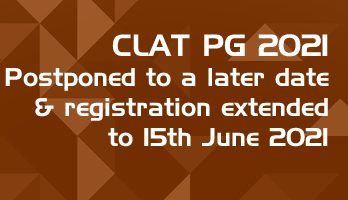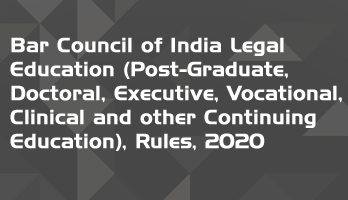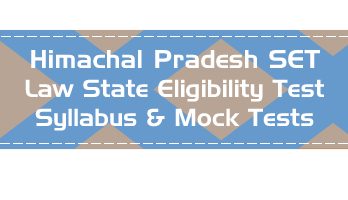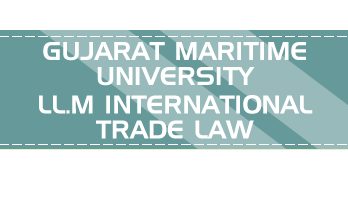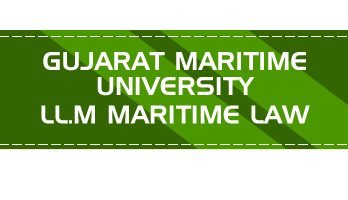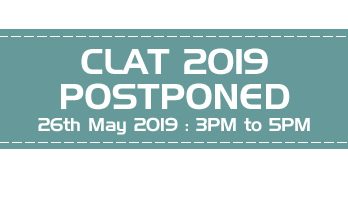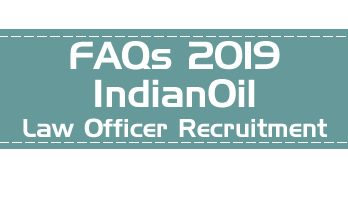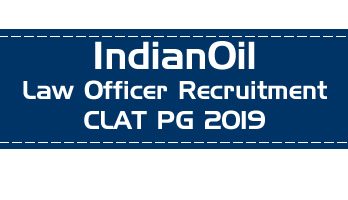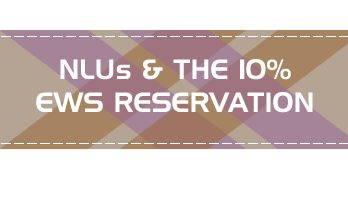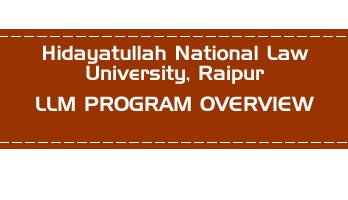Q : What is the best MBA field for law graduates?
Ans :
Depends on the area you wish to specialize in . . .
The MBA program will consist of core subjects which are generic to all areas and specialization / electives like HR, Marketing, Finance, Operations etc. These days, you also have niche specializations like Hospital Management, Information systems, Entrepreneurship etc.
LLB is a generic degree, where you touch upon almost all the areas of Law (Other than state specific laws)
To specialize in a specific area, academically you will have to :
- pursue a LLM or any other course / certificationOR
- get practical work experience in the field.
Think of the MBA on the same lines; where the course will be an extension of your education + area of interest; so that it can add value to your profile.
For example, if I have an inclination towards working in the HR/IR field, I can pursue an MBA in HR after LLB. I can thereafter project myself as Law Grad with additional qualifications in HR/IR and pursue careers in that specific area.
LLB + MBA Finance will help me pursue corporate finance and consulting roles.
LLB + MBA Entrepreneurship will help me work as a consultant for start-ups
LLB + MBA in Shipping & Logistics will help me pursue Maritime Law
So, there is no one ‘best MBA specialization’ for Law Grads. It depends on your inclination and interest.
If you have no specific preference at this time, I would suggest looking at a generic MBA, which will help you decide on the are a of specialization once you start in your corporate career.
Thanks for the A2A.
Q : Will the National Eligibility Test (NET) be once or twice a year from 2019?
Ans :
Probably / Yes.
I can’t find the article / link, but I remember reading a note from NTA that the NET exam will be conducted twice every year, much like the model that was originally envisioned by UGC.
For several years, NET exam would be conducted twice – in June / July and then again in Nov / Dec. However, there were some issues in the interim + the Court case, which disrupted this schedule.
From Nov onward, the exam seems to be back on track, with the July & Dec exams.
Dec will be NTA’s first experience with the NET exam. Depending on how smoothly the exam goes, the next year’s schedule will be decided.
To summarize : As of now, NTA’s plan seems to be to conduct the exam twice every year. However, let’s wait and watch till the Dec exam is completed.
Q : How can one prepare for the NET 2019? What reading material is needed?
Ans :
This is a very frequently asked question, so re-using my answer from other similar questions . However, the details are relevant for most NET subjects.
Two ~ three months of focused & dedicated preparation is more than enough to crack the NET exam.
With a decent amount of effort and some smart preparation, it is possible to crack the NET in the first attempt – and a number of candidates do that every time.
The NET is not a difficult exam to start with. The challenge is that you have to make it to the top 6% to get qualified.
A number of students delve into extensive theory to prepare for the NET – which is not something I recommend. Because the theory is something you have already studied in your graduation & PG. Do you really want to dig up all the old text books and study again ?
Instead, focus on solving as many papers and mock tests as possible; which will help you focus on the crucial areas and understand your weaknesses.
Also, the approach is to know or guess the correct answers within the limited time available. So practice, practice and practice.
When should I start preparing ?
I always find it easier to focus on the preparation for any exam when I am running against a deadline. If I have too much time, I tend to slack off. So two ~ three months is the ideal time for focused prep.
This is the outline of the strategy I would recommend :
Extensive theory books are not required . . .
Since the UGC NET is a completely objective exam, studying extensive theory is not an ideal prep strategy.
The books covering the full syllabus are nothing but your graduation text books.
Selective & focused study is the best approach for the NET.
UGC NET Paper II, it is mostly a memory game. The entire syllabus of a subject is sought to be compressed and tested within 100 questions.
You just need to remember the right answer – even if you don’t know the detailed theory behind it.
For Paper 1, apart from memory based questions, you need to know the processes of how to calculate, select or guesstimate the right answers.
For both papers, it is all about practice, practice and more practice; since a most of the questions are repeated, adapted or derived from a standard pool of questions.
What I would suggest for both Paper 1 and 2 is :
[1] Solve at least 5 previous papers even before you start your prep.
[2] Review the papers you have attempted and you will identify your strengths and weaknesses. For example, in paper 1 you may be very good at data interpretation, but need to improve your reading comprehension etc.
[3] Watch good explanation videos of previous question papers which explain how to solve the different types of problems.
[4] Start your second round of practice and again attempt as many previous papers + mock tests as possible.
[5] Review each paper thoroughly before attempting the next paper
Within 15 ~ 20 days, you will see a significant improvement in your scores. Keep practicing till you consistently score above 85% and you are ready to crack the NET exam.
Q : What subject should I select for UGC CBSE NET?
Ans :
Reusing my answer from a similar questions . . .
Follow your ‘Purpose’ or follow ‘The Money’ . . .
Typically, you are expected to take up the NET in the subject of your Masters’ Degree. However, if you have checked the eligibility criteria for the NET exam and if you are eligible for two or more subjects, you can either :
- Follow the intent or purpose behind taking up the exam – i.e. you might be interested in pursuing PhD or teaching in a specific area which interests you. Demand-supply calculation is not applicable here.Or
- Follow the money – where you do a quick analysis on which stream has more jobs, higher paying jobs etc. Use a demand-supply mapping approach.
Do a little bit of Google research for Asst. Professor openings, which will give you some overall numbers on the demand in the areas of your eligibility.
In most cases, the issue is not with passing the NET. The issue would be to actually capitalize on the qualification – in terms of the NET adding value to your profile; for which it has to be relevant & connect with your prior experience and education.
For example, if I have extensive experience in Management, but I take NET in Economics just because I am eligible, I might not be able to leverage the NET qualification since the institutions where I apply for Asst. Professor roles will focus on the disconnect between the area of my experience & the area of my NET qualification.
So choose the subject which is in sync with your overall profile + experience + education + aspirations.
Q : Which subject should I choose for the NET?
Ans :
Reusing my answer from similar questions . . .
Follow your purpose or follow the money . . .
Typically, you are expected to take up the NET in the subject of your Masters’ Degree. However, if you have checked the eligibility criteria for the NET exam and if you are eligible for two or more subjects, you can either :
- Follow the intent or purpose behind taking up the exam – i.e. you might be interested in pursuing PhD or teaching in a specific area which interests you. Demand-supply calculation is not applicable here.Or
- Follow the money – where you do a quick analysis on which stream has more jobs, higher paying jobs etc. Use a demand-supply mapping approach.
Do a little bit of Google research for Asst. Professor openings, which will give you some overall numbers on the demand in the areas of your eligibility.
In most cases, the issue is not with passing the NET. The issue would be to actually capitalize on the qualification – in terms of the NET adding value to your profile; for which it has to be relevant & connect with your prior experience and education.
Q : What should I do after my MSW (HR and IR)? Should I take the UGC NET HRM (Code 55) exam or UGC NET Social Work?
Ans :
Reusing my answer from a similar question . . .
Follow your purpose or follow the money . . .
Typically, you are expected to take up the NET in the subject of your Masters’ Degree. However, if you have checked the eligibility criteria for the NET exam and if you are eligible for two or more subjects, (which seems to be the case with MSW (HR & IR), you can either :
- Follow the intent or purpose behind taking up the exam – i.e. you might be interested in pursuing PhD or teaching in a specific area which interests you. Demand-supply calculation is not applicable here.Or
- Follow the money – where you do a quick analysis on which stream has more jobs, higher paying jobs etc. Use a demand-supply mapping approach.
Do a little bit of Google research for Asst. Professor openings, which will give you some overall numbers on the demand in the areas of your eligibility.
Looking at the numbers, there seem to be more candidates qualifying in SW rather than in HRM.
Subject, Total, Asst Prof only, JRF and Asst Prof, Eligible
(010) Social Work, 850, 767, 83, 14167
(055) Lab. Welfare/PM/IR/Lab.& Soc.Wel./HRM, 398, 368, 30, 6633
In most cases, the issue is not with passing the NET. The issue would be to actually capitalize on the qualification – in terms of the NET adding value to your profile; for which it has to be relevant & connect with your prior experience and education.
Q : Do we need to add name and date of taking photograph for NTA NET December exam?
Ans :
As per the application form, the following instructions are given about uploading the scanned photograph and image of the signature.
- The scanned images of Photograph and Signature should be in jpg/jpeg format only.
- Size of the Photograph image must be between 10 kb to 200 kb.
- Size of the Signature image must be between 4 kb to 30 kb.
- Note :Upload the correct Photograph and Signature as the facility for correction will not be given.
In the NTA NET Bulletin PDF document, there is a mention that :
The photograph must be taken on or after 01.09. indicating clearly the name of candidate along with the date of taking the photograph.
Looks like the name and date must be written on the photograph itself since there is no seperate field to enter the details in the application form.
The basic instructions for filling up the NTA UGC NET online form are :
Application Procedure: 3 Simple Steps to be followed to apply online
Step 1:\tFill in the Online Application Form and note down system generated Application Number. The candidate should supply all the details while filling the Online Application Form and is also required to create PASSWORD and choose Security Question and enter his/her Answer. After successful submission of the data, Application number will be generated and it will be used to complete the remaining Steps of the Application Form which is also required for all future correspondence. For subsequent logins, candidate will be able to login directly with the respective system generated Application Number and created Password.
Step 2:\tUpload Scanned Images of Photograph and Signature:
- The scanned images of Photograph and Signature should be in jpg/jpeg format only.
- Size of the photo image must be between 10 kb and 200 kb.
- Size of the signature image must be between 4 kb and 30 kb.
Note :Upload the correct Photograph and Signature as the facility for correction will not be given.
Step 3:\tPay Examination Fee by SBI MOPS (Net Banking/Debit/Credit Card/e-Challan) :.
Payment by Debit/Credit Card/Net Banking/e-Challan: The candidate has to select Debit/Credit Card/Net Banking option to pay the application fee and follow the online instruction to complete the payment of fee. After successful payment, candidate will be able to print the Confirmation Page.
In case the Confirmation Page is not generated after payment of fee then the transaction is cancelled and amount will be refunded to the candidate’s account. However the candidate has to make another transaction, in case the Confirmation Page is not generated.
Q : Is there negative marking in the Railway Group D exam?
Ans :
Yes.
As per the official notification, there will be negative marking for incorrect answers in the CBT.
1/3 of the marks allotted for each question will be deducted for each wrong answer.
If the negative marking was 1/4th, I would have suggested just answering all questions – even if it is a guess. However, with 1/3rd, I would suggest being prudent and answering questions where you are relatively sure and avoid blind guesses.
Q : Can one appear for the UGC NET after a PG in banking?
Ans :
You need to clarify on the equivalence of the PG Degree to a Masters Degree . . .
I am not sure which is the specific PG in Banking course that you are referring to, since there are several courses with similar names.
But as long as the course is recognized as equivalent to a Master’s Degree, you can take the UGC NET and qualify.
Not all PG degrees are considered to be equivalent to a Masters degree; as per the UGC’s official note :
The candidates having Post Graduate Diploma awarded by an Institution should in their own interest, ascertain the equivalence of their diploma with Master’s degree of recognized Indian universities from the website of Association of Indian Universities (AIU) (
Q : Which app is best for NTA UGC NET mock test and preparation?
Ans :
An app is usually just a front-end for a website.
So, any website that is designed to work with mobile browsers will be good.
Try
Q : Can I do an LLB after a BSc. in animation?
Ans :
Yes.
The basic academic requirement for a 3 year LLB is a graduation in any field. As long as it is a UGC recognized graduation, It doesn’t matter what the degree is.
BA / BSc / BCom / BBA / BEd / BE / BTech / MBBS . . . it doesn’t matter.
Practically speaking, there is no correlation and advantage that any specific degree holder will get when they take up a LLB. Because, the entire set of subjects will be new and all students will be at a similar starting point at the beginning of the course.
Yes, some factors will be a helpful trait for LLB students – the ability to write well and ‘write a lot’ for essay type questions.
A decent command over English language, so as to read and understand various laws and acts and be able to write meaningful answers about them.
Patience to go through reams of material and memorize some aspects – such as legal terminology, section numbers, key parts of various acts and rules.
To put it in a nutshell : Yes, you can do a LLB after any prior graduation – as long as it is UGC recognized + you have the minimum marks required for eligibility.
While the Tier 1 colleges & most Tier 2 LLB colleges have an entrance exam, the Tier 3 colleges will admit students on the basis of their meeting the eligibility.
Just make sure that the college is affiliated to a proper University, is UGC & BCI recognized. You will eventually get a BCI recognized Law degree.
Thanks for the A2A.
Q : How are the placements of NLSIU Bangalore for LLM graduates?
Ans :
This is adapted from my recent answer to a similar question.
The actual placement packages for LLM are not disclosed by NLSIU, but you can ‘guesstimate’.
Considering that the LLM candidates will usually have more experience + the additional educational qualification; there will be a wider variation in the LLM placement packages as compared to the LLB packages.
And not all LLM candidates will opt for placements.
- Some would prefer to study for the UGC NET or other exams.
- Some would prefer to prepare for the Judiciary and other exams.
- Some would start their own practice.
- Some would take up opportunities outside the college placement process.
When we look at the 2016–17 LLM placement details for NLSIU, the list of companies, LPOs and legal firms is as given below in this answer.
A majority of them are the same firms which recruit from the LLB classes of NLSIU.
The median pay package mentioned for NLSIU LLB placements is around Rs 14.5 lakh PA; so the LLM placements will also be in a similar range, if not marginally higher.
The NLSIU LLM students also do their internship / vacation schemes in a variety of firms; and some of them can convert their internship into jobs after graduation.
List of firms who have recruited from NLSIU LLM in the past (As per the 2016–17 brochure :
- Amarchand & Mangaldas & Suresh A. Shroff & Co.
- Anand & Anand Advocates
- AZB & Partners
- Bajaj Allianz
- Bhasin & Co.
- Clifford Chance
- Companies & LPOs
- Desai & Dewanji
- DLF Limited
- DSK Legal
- Dua Associates
- Edelweiss Corporate
- Exchange Credit Guarantee Corporation
- Fox Mandal Little & Co.
- HAL, Bangalore
- IBM
- KNM & Partners
- KPMG LLP
- Krishnamurthy & Co
- Larsen & Tourbo Infrastructure
- Legasis Service Pvt. Ltd.
- Lex Orbis Intellectual Property
- MCX Stock Exchange Ltd
- Microsoft Corporation
- Pangea
- Power Grid Corporation of India Ltd.
- Quistex
- Reliance Power Ltd.
- SBI Life Insurance
- SEBI
- Tata Motors
Q : What is the average package of NLSIU Bangalore after doing an LLM?
Ans :
The actual placement packages for LLM are not disclosed by NLSIU, but you can ‘guesstimate’.
Considering that the LLM candidates will usually have more experience + the additional educational qualification; there will be a wider variation in the LLM placement packages as compared to the LLB packages.
And not all LLM candidates will opt for placements.
- Some would prefer to study for the UGC NET or other exams.
- Some would prefer to prepare for the Judiciary and other exams.
- Some would start their own practice.
- Some would take up opportunities outside the college placement process.
When we look at the 2016–17 LLM placement details for NLSIU, the list of companies, LPOs and legal firms is as given below in this answer.
A majority of them are the same firms which recruit from the LLB classes of NLSIU.
The median pay package mentioned for NLSIU LLB placements is around Rs 14.5 lakh PA; so the LLM placements will also be in a similar range, if not marginally higher.
The NLSIU LLM students also do their internship / vacation schemes in a variety of firms; and some of them can convert their internship into jobs after graduation.
List of firms who have recruited from NLSIU LLM in the past :
- Amarchand & Mangaldas & Suresh A. Shroff & Co.
- Anand & Anand Advocates
- AZB & Partners
- Bajaj Allianz
- Bhasin & Co.
- Clifford Chance
- Companies & LPOs
- Desai & Dewanji
- DLF Limited
- DSK Legal
- Dua Associates
- Edelweiss Corporate
- Exchange Credit Guarantee Corporation
- Fox Mandal Little & Co.
- HAL, Bangalore
- IBM
- KNM & Partners
- KPMG LLP
- Krishnamurthy & Co
- Larsen & Tourbo Infrastructure
- Legasis Service Pvt. Ltd.
- Lex Orbis Intellectual Property
- MCX Stock Exchange Ltd
- Microsoft Corporation
- Pangea
- Power Grid Corporation of India Ltd.
- Quistex
- Reliance Power Ltd.
- SBI Life Insurance
- SEBI
- Tata Motors
Q : What happens after getting qualified in the TSSET exam? Is there any other testsprocedure after getting qualified?
Ans :
No & Yes.
As far as the TS SET is concerned, if you clear the exam, you are considered as TS-SET qualified and eligible for Assistant Professor posts within the state of Telangana.
There is no JRF part in the State SETs.
Think of the TSSET as the state level equivalent of the UGC NET exam. While UGC net has JRF + Asst. Professor eligibility pan India; the TS SET is at a State Level only.
Clearing the TS SET makes you eligible for Asst. Professor roles; but does not automatically guarantee a job. You will will have to apply when openings are announced and go through the normal Institution level selection process, which will have some shortlisting, interviews etc.
Q : Is there any relaxation in percentage of marks in PG degrees for women candidates to appear for the CSIR UGC NET?
Ans :
*** This is adapted from my answer to a similar question for the UGC NTA NET. This is broadly applicable for the CSIR NET also. The upper age limit for CSIR JRF is 32 years & the LLM part will not be applicable. Rest of it is applicable. ***
To summarize my answer below :
In terms of the percentage of marks in the PG degree, the eligibility criteria is same for all genders.
However, there is a relaxation (5 years) in terms of upper age limit for women candidates.
The rest of this answer pertains only to age limit.
I. For Assistant Professor Only :
There is no upper age limit for anyone, so relaxation is not applicable.
II. For Assistant Professor & JRF
(i) Not more than 30 years (32 years for the CSIR NET) as on a specified date mentioned in the NET notification.
A relaxation up to 5 years is provided to the candidates belonging to OBC (Non-creamy layer, as per the Central list of OBC/SC/ST/PwD/Transgender categories and to women applicants.
*** The relaxation is for all women applicants ***
Relaxation will also be provided to the candidates having research experience, limited to the period spent on research in the relevant/related subject of post graduation degree, subject to a maximum of 5 years, on production of a certificate from appropriate authority.
For the UGC NTA NET, Three years relaxation in age will be permissible to the candidates possessing L.L.M. Degree.
A relaxation of up to 5 years is provided to the candidates who have served in the armed forces subject to the length of service in the armed forces up to the first day of the month in which the concerned UGC-NET is to be held.
Even if a candidate comes under several categories, total age relaxation on the above ground(s) shall not exceed five years under any circumstances. (e.g. A woman candidate from a reserved category, with LLM degree will still get only a total of 5 years of relaxation.)
Q : How many steps are there in the NET exam to qualify?
Ans :
Just one step – you take the exam.
The UGC NET is just one exam, with two papers.
- Paper 1 – General (Teaching & Research aptitude) is common for all candidates
- Paper 2 is subject specific. ie. Law, Commerce, Economics etc.
If you meet the minimum marks criteria in both the papers, you are considered to be UGC NET ‘eligible’.
From among the ‘eligible’ candidates, the top 6% are declared as UGC NET qualified.
Now, when you are UGC NET qualified, you can be qualified for either ‘JRF + Asst. Professor’ or for ‘Asst. Professor’ alone.
The only difference between the two – in terms of qualification / eligibility is age factor.
While it is the same top 6% criteria for both JRF and Asst. Professor combined, if you are 30 years or less; you will be qualified for both ‘JRF + Asst. Professor’ and if you are 31 years +, you will be qualified only for Asst. Professor.
*** I am not touching upon the eligibility criteria for the UGC NTA NET Exam since that is not a step in the actual exam. The eligibility aspect comes in even before the exam ***
Q : Can I apply for the NET if I failed in one semester of an M.Sc?
Ans :
Yes. You can.
As far the official rules are concerned :
(ii) Candidates who are pursuing their Master’s degree or equivalent course or candidates who have appeared for their qualifying Master’s degree (final year) examination and whose result is still awaited or candidates whose qualifying examinations have been delayed may also apply for this test.
However, such candidates will be admitted provisionally and shall be considered eligible for award of JRF/eligibility for Assistant Professor only after they have passed their Master’s Degree OR equivalent examination with at least 55% marks (50% marks in case of OBC falling in Non Creamy layer/SC/ ST/PwD category candidates). Such candidates must complete their Masters degree or equivalent examination within two years from the date of NET result with required percentage of marks, failing which they shall be treated as disqualified.
So you have up to 2 years to complete your MSc after you clear your UGC NTA NET.
If you don’t clear, your Masters Degree within 2 years from the NET results, your NET qualification will lapse.
Bottom-line : While you are waiting to clear the pending papers in your MSc, I don’t see any reason why you should not take up the NET.
With only 6% of the eligible candidates declared as NET qualified, not all the candidates will be able to clear it in one attempt. Taking the NET as soon as possible, is a good way to get some bandwidth for extra attempts if required.
Q : How can I clear KSET or UGC NET in computer science?
Ans :
The KSET & UGC NET Paper II syllabus is essentially your graduation syllabus. (Even though eligibility for NET is PG).
What any prep course material will do is just try to summarize the basic graduation material to make it look smaller + fit it into one book.
However, the best way to prepare for the KSET / NET exam is to solve as many previous question papers + relevant MCQs as possible. Unless you are really weak in your basics, going back to the theory aspect is not required.
Think about it, you have the entire syllabus from a 3 year degree course and you are testing it with just 100 MCQs. There will be a high degree of predictability, repetition and pattern in the questions.
So, what I would recommend is to enroll on any website which offers all the previous papers + a good number of mock tests and keep solving them till you consistently score above 85% – which will mean that you are ready to crack the KSET / NET comfortably.
After every attempt, analyse your answer and see if the reason for wrong answers or unanswered questions is because you are not familiar with the questions or you just could not remember the answers.
If the questions look unfamiliar, you need to go back to the basics. If it is more of not able to remember the answers, you just need more practice – so get back to solving more MCQs.
Also, I would rather solve 1000 relevant questions rather than 100000 irrelevant questions. For example, anyone can generate irrelevant 100000 MCQs for paper 1; which will not help in the preparation. However, we looked at the past papers from Dec 2004 – till date and created a database of relevant / most likely MCQs for Paper 1.
We completed a similar exercise for KSET / UGC NET Law and we are working on a similar database for KSET / UGC NET commerce also.
To summarize –
- solve as many MCQs for Papers 1 & 2 as possible
- go back to the theory only for areas where you need to brush up your basics (which you will realize when you solve MCQs)
Q : Which books are best to prepare for commerce, net subject-wise?
Ans :
Your graduation text books.
The UGC NET syllabus is essentially your graduation syllabus. (Even though eligibility for NET is PG).
What any prep course material will do is just try to summarize the basic graduation material to make it look smaller + fit it into one book.
However, the best way to prepare for the NET exam is to solve as many previous question papers + relevant MCQs as possible. Unless you are really weak in your basics, going back to the theory aspect is not required.
Think about it, you have the entire Commerce syllabus from a 3 year degree course and you are testing it with just 100 MCQs. There will be a high degree of predictability, repetition and pattern in the questions.
So, what I would recommend is to enroll on any website which offers all the previous papers + a good number of mock tests and keep solving them till you consistently score above 85% – which will mean that you are ready to crack the NET comfortably.
Also, I would rather solve 1000 relevant questions rather than 100000 irrelevant questions. For example, anyone can generate irrelevant 100000 MCQs for paper 1; which will not help in the preparation. However, we looked at the past papers from Dec 2004 – till date and created a database of relevant / most likely MCQs for Paper 1.
We completed a similar exercise for UGC NET Law and we are working on a similar database for UGC NET commerce also.
To summarize –
- solve as many MCQs for Papers 1 & 2 as possible
- go back to the theory only for areas where you need to brush up your basics (which you will realize when you solve MCQs)
Q : Should I risk my 12th class boards for the sake of the CLAT?
Ans :
No.
Absolutely not.
10th marks, 12th marks and Graduation marks are the bedrock on which will build your career.
A number of companies and institutions use 10th / 12th marks as one of the shortlisting / elimination criteria.
You can take the CLAT a year later or any number of times – since there is no limit on attempts or age. However, you cannot retake your 10th / 12th.
So, focus on your 12th and get the best scores you can and CLAT is secondary.
Remember, even if you dont clear CLAT, with good 12th marks, you will have a lot of other avenues to pursue.


